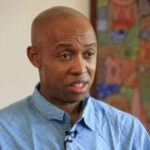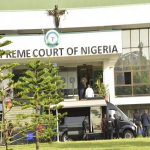Nigeria’s return to civil rule has proved to be far more trying than many had hoped. Of the challenges that emerged in its wake, few have proved to be as durable or chronic as that of guaranteeing public safety and security for the country. From the onset of the return to elective rule, the country has battled insecurity.
Following the retreat of the military to the barracks on May 29, 1999, the security situation in the country ran amok. The contest for money, power, and influence among politicians degenerated into a spree of political assassinations. Different people and interest groups freely traded blames, assigning presumptive responsibility for the killings.
Predictably, a major focus of the competing claims was the government of President Olusegun Obasanjo. Following the December 2001 assassination of then Attorney-General of the Federation, Bola Ige, Charles Mafua, then Chair of the Nigerian Bar Association (NBA) in Kaduna declaimed that “encouraged by the government’s inability to track down the killers of its law officer and other Nigerians, assassinations, political or otherwise, have assumed (the level) of a national pastime, a very attractive and lucrative business for the teeming jobless youths and adults of our country.”
Many people also blamed the Nigeria Police Force (NPF), describing its handling of these killings as “lethargic” at best. In response, many states established vigilantes, formal or informal, which ultimately seemed to create more problems than they could solve. The official security services, including the NPF, were hardly fit for purpose. Institutionally, they were undermanned and their personnel suffered from low morale.
In January 2002, a group identifying itself as “Warrant Officers in the Nigerian Army and their Equivalents in the Navy, Air Force and Inspectors of Police and the Rank and File of the Armed Forces and Police of Nigeria” went public with a letter to three leading figures in civic advocacy, including Chief Gani Fawehinmi, SAN, in which they complained about lingering problems of morale in the joint services inherited in the transition from the military regime of General Abdulsalami Abubakar. Among the highlights of these pathologies they complained that:
• there was no security in the country not necessarily because there were few army and policemen but because many soldiers and policemen were used to guard senior serving and retired officers, their relations and friends, and also the well-to-do in the society, leaving the larger society of ordinary Nigerians unprotected;
• the crime wave in the country continued to rise alarminglybecause many policemen and soldiers who should be used to protect Nigerians were attached to crime barons and other dubious persons who freely gave big money to senior officers or those connected to those in the corridors of power; and
• soldiers and Policemen with good records stagnated on one rank, in some cases for over 15 years without promotionwhile a few among the personnel who had godfathers enjoyed an overdose of rapid promotions.
The publication of this letter in the New Year roiled the Joint Services, creating a rapid cascade of consequences which forced an angry President Obasanjo to summarily fire then Inspector-General of Police, Musiliu Smith.
If there was one thing these developments demonstrated to the country, it was the overwhelming role of the president in ensuring security or undermining it. Chief Simon Okeke, who served as the pioneer chair of the Police Service Commission (PSC) under President Obasanjo from 2001 to 2006, dramatises this point in his recent memoir, Policing the Nigeria Police, in a narration of events that took place in Anambra State, south-east Nigeria, in 2003-2004.
Chief Okeke recalls what transpired in 2004, when the then president instructed the police commissioner in Anambra State to withdraw police protection from the sitting state governor, Chris Ngige, at a time when the state government was under violent attack from forces unleashed by close political associates of the president in Anambra State whom acclaimed author, Chinua Achebe, famously described as “a small clique of renegades, openly boasting its connections in high places.” As PSC Chair, Chief Okeke responded by requiring the state Commissioner of Police to ensure that the Governor had police protection, in effect countermanding the order of the President, a retired four-star General who did not take kindly to having his orders treated in that manner.
An affronted president summoned Chief Okeke, who was away in the hinterland, to the presidential villa to explain himself. On arrival back in Abuja, President Obasanjo’s Chief of Staff, Abdullahi Mohammed, himself also a retired Generalwhose era in active service coincided with Obasanjo’s, ushered Chief Okeke into the cauldron of a seething president who would not initially be assuaged. When eventually he got the opportunity to explain himself, Chief Okeke pleaded his case as resolutely as he could.
Shorn of the diplomatese necessitated by the moment, his explanation was that it was not the place of a president to substitute his whim for the clear stipulations of the constitution as to how to terminate the tenure of a sitting governor. When the president appeared to insist on his view of the matter, Chief Okeke offered that he could not as Chair of the PSC do the job in good standing if the governor of his state was going to be put at the mercy of death by violence at the hands of acolytes of the president. It was a two-fer of a brutal push-back and an offer of resignation which President Obasanjo, unused to such,uncharacteristically declined.
Like a cat with nine lives though, this was not the first time that Dr. Ngige’s fate would be foundational in shaping insecurity in (south-east) Nigeria. On or about July 10, 2003, Assistant Inspector-General of Police, Raphael Ige, (who was due for retirement three weeks thereafter on August 1, 2003) arrived Awka, the Anambra State capital, where he subsequently attempted to abduct the state governor, Dr. Ngige. According to Chief Okeke, “the governor very narrowly escaped abduction by a chance phone call made possible by a ‘good Samaritan’ who suspected some foul play.”
Four days later, on July 14, President Obasanjo requested the PSC to investigate the circumstances of Dr. Ngige’s attempted abduction. The Commission completed its investigation and delivered a report to the president on July 22, concluding rather incredulously that “AIG Raphael Ige acted on his own and did not have the authority or consent of anybody in the whole saga.”
The panel recommended the dismissal from the NPF of AIG Ige, who had only 10 more days to go in service. Ige did eventually retire in August 2003. Five months later, on January 13, 2004, he conveniently expired at the Federal Medical Centre (FMC) in Lokoja, the capital of his home state, Kogi, in north-central Nigeria.
Over two decades later, this vignette offers many lessons in why the pathologies that define coexistence and insecurity in Nigeria are stubborn. First, insecurity will never be solved under the watch of any president who prefers hearing what he wants to hearing what he needs to know.
Second, when presidents play fast and loose with public safety and security, the effects can be very durable. Third, public officers charged with protecting the country are unfit for purpose if they choose to be presidential courtiers preoccupied with preserving intimate relationships between their derriere and the glue that holds it to office.

















